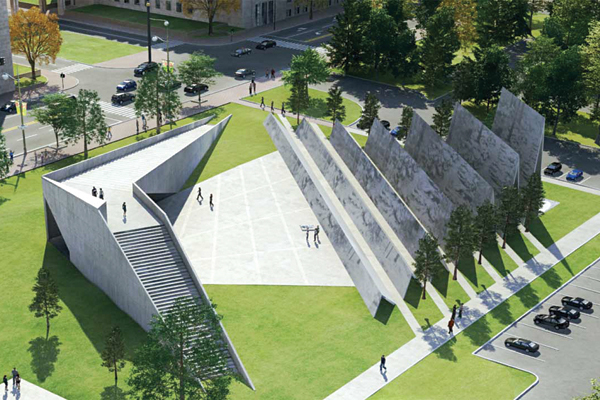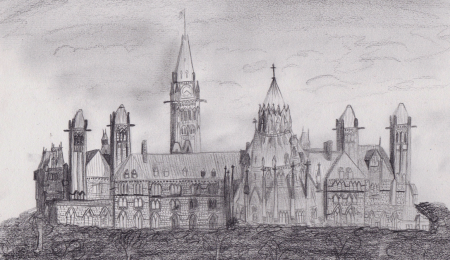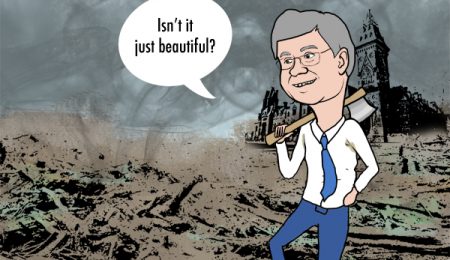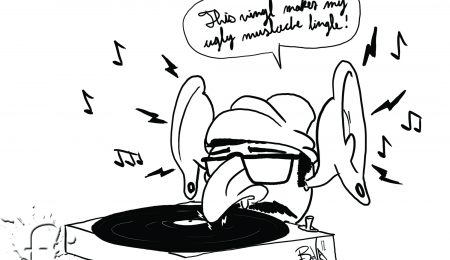Proposed monument should be terminated or, at the very least, moved
Photo: tributetoliberty.ca
While it is beneficial for Canadians to understand the history of communism, the issue is better left as a chapter in a history textbook rather than embodied by an enormous concrete block in the parliamentary district of the capital.
In September 2009, the Tribute to Liberty charity was given authorization to construct the Memorial to the Victims of Communism between Library and Archives Canada and the Supreme Court of Canada.
Ottawa’s judicial precinct is prime real estate for the establishment of cultural touchstones and it should be reserved for a building or monument that speaks to some kind of national experience. Instead, this area is going to be used to build something that will only divide Canadians along political and ideological lines.
The political element of this decision is especially obvious in an election year. Among many peculiarities of the memorial is that the government has close ties to the project, which, according to some experts, is very unusual.
Tonya Davidson, an assistant professor of sociology at Ryerson University, notes that special interest groups are normally the majority of proponents of monuments in the capital region. This time around, members of the Conservative government, including Prime Minister Stephen Harper and former Minister for Multiculturalism Jason Kenney, have been a part of the project since its inception. Outside of these questionable connections, the federal government will also be financing $3 million of the $5.5 million required to build the memorial.
Hence, it’s no surprise the memorial has been deemed a Conservative project. As eight million Canadians trace their origins to communist countries, the memorial could be a tool to garner votes in the upcoming election.
And the politics behind this project take another unsightly turn when you realize that the construction of this memorial has moved ahead without much, if any, local oversight.
Mayor Jim Watson has already objected to the construction of the memorial, stating that the project was given a green light without the consultation of the City of Ottawa. This kind of grievance is echoed by the student group behind the Move the Memorial campaign, who say that “the process through which this monument was approved highlights a neglect for due-process and public consultation that, if left unchallenged, has the potential to become a key characteristic of the decision-making process of the Canadian government.”
Ideologically speaking, the monument is also problematic. The Communist Party of Canada has already argued that the memorial “is intended to intimidate and isolate progressive parties and movements, and to limit the free expression of ideas.” Building a monument dedicated to the victims of a specific ideology opens up a morally dubious can of worms.
Why construct a memorial to the victims of communism and leave other repressive regimes untouched? Movements like capitalism and colonialism have been similarly oppressive throughout the years, yet no one is chomping at the bit to commemorate victims of these ideologies.
Despite these widespread public concerns, the monument is still firmly set to take root this summer. As such, if the Harper government and Tribute to Liberty are unwilling to halt construction of the memorial, a change of location would be a fitting compromise.
The Royal Architectural Institute of Canada has already suggested the Garden of the Provinces and Territories would be a suitable replacement site. Not only is this park located only 300 metres away from the original location, its four acres also give the monument more room to breathe without obstructing two prominent local landmarks.
The memorial’s proponents ought to take this advice and spare the people of Ottawa a giant, politically divisive eyesore this coming summer.





